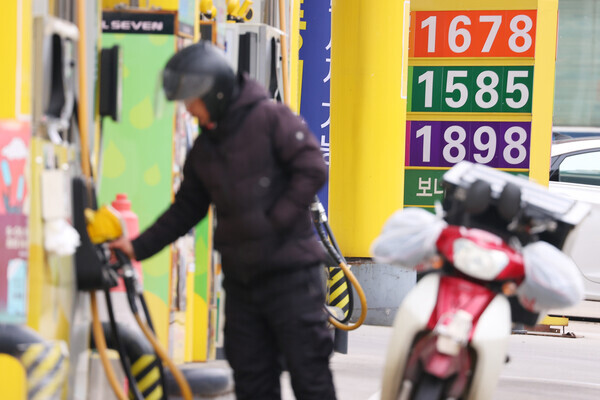
Seoul, South Korea – South Korean drivers are facing a continued increase in fuel prices, with both gasoline and diesel prices hitting 11-week highs. The surge is primarily attributed to the significant depreciation of the South Korean won against the U.S. dollar, despite relatively stable international oil prices.
According to data released by the Korea Petroleum Association, the average retail price of gasoline at South Korean gas stations climbed by 9 won per liter in the fourth week of December, reaching 1,662.2 won per liter. This marks a steady increase from the previous week and the highest level since late October. Similarly, diesel prices rose by 9.7 won per liter to 1,507.2 won per liter, surpassing the 1,500 won threshold for the first time in four months.
The weakening of the South Korean won against the U.S. dollar has directly impacted domestic fuel prices, as most crude oil is traded in U.S. dollars. Even though international benchmark crude prices have remained relatively stable, the increased cost of purchasing dollars to pay for imported oil has led to higher retail prices at the pump.
Factors Contributing to the Price Hike
Weakening Korean Won: The depreciation of the South Korean won against the U.S. dollar has increased the cost of importing crude oil.
Stable International Oil Prices: While international oil prices have shown minor fluctuations, they have generally remained stable, limiting the downward pressure on domestic prices.
Delayed Price Adjustments: It typically takes two to three weeks for changes in international oil prices to be reflected in domestic retail prices.
Regional Variations and Outlook
Regional disparities in fuel prices were also observed, with Seoul recording the highest average price of 1,720.2 won per liter, while Daegu had the lowest at 1,633 won per liter.
Industry experts predict that the upward trend in fuel prices is likely to continue in the coming weeks, citing the ongoing depreciation of the Korean won and the potential for further increases in international oil prices due to geopolitical tensions or supply disruptions.
Impact on Consumers
The sustained increase in fuel prices is expected to have a ripple effect on the South Korean economy, as higher transportation costs can lead to inflation and reduce consumer spending. Additionally, businesses that rely heavily on transportation, such as logistics and delivery services, may face increased operating costs.
Government Response
The South Korean government has been closely monitoring the situation and is considering implementing measures to alleviate the burden on consumers, such as providing temporary fuel subsidies or adjusting tax policies. However, any significant intervention would require careful consideration of the potential economic implications.
[Copyright (c) Global Economic Times. All Rights Reserved.]






























